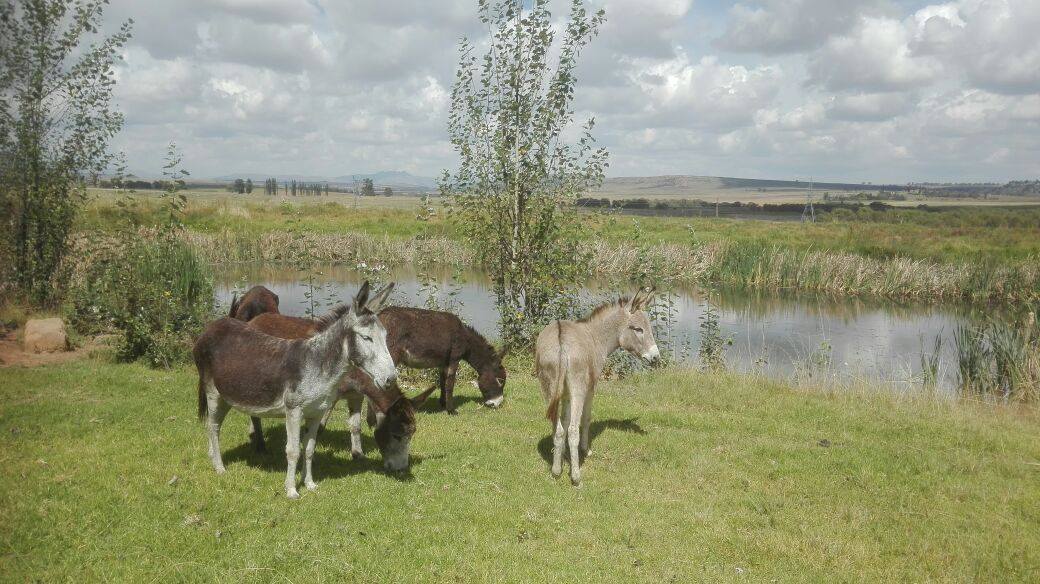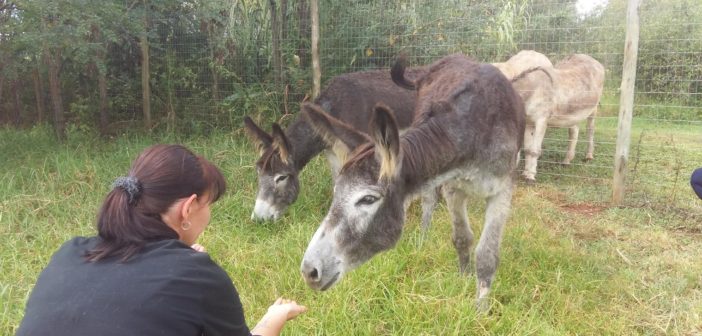The National Council of SPCAs in South Africa is delighted to report a positive, uplifting and heart-warming outcome relating to donkeys rescued from the horrific trade in their skins.
We report that five donkeys have arrived at a beautiful property in Bethlehem in the Free State where they will live out the rest of their lives. The donkeys were adopted according to the standard procedure, which involves a formal application to adopt an animal, including demonstrating that one is able to afford private veterinary fees and committing to looking after the animal for the rest of its natural life.
A further 14 donkeys will travel shortly to a new home. Their adoptions have been approved as all the required administrative procedures have been undertaken.
These donkeys were rescued in the Sani area in early 2017. They were initially cared for at the Sani SPCA, but since their operation is not far from the Lesotho border post, it was feared that the donkeys might be stolen. Their welfare and safety were top priorities, so a decision was taken to move the donkeys to other SPCAs.
The journey to their temporary homes started early on the morning of 24 February 2017, when they were safely loaded into trucks and their journey to the Benoni SPCA and the Kloof and Highway SPCA began. No issues were encountered. Several stops were made en route to Johannesburg to provide water and facilitate checks by our inspectors and veterinarian.
The end of the story is a very uplifting one not only for the donkeys, but for all the dedicated staff involved who worked tirelessly to ensure their safety and to secure their future.

Donkey hide contains a gelatine which is claimed to carry medicinal properties. The gelatine is a key ingredient in China’s ejiao industry, which produces tablets, tonics and a sweet syrup. Donkeys from all over the world are slaughtered, often illegally after being stolen, and their hides exported to China to fuel demand for ejiao.
The “donkey skin trade” continues, but so do our efforts to monitor situations, respond to information received and to take whatever steps may be appropriate when necessary. Criminal charges have been laid in several instances, cases brought before the Courts and convictions obtained. The National Council of SPCAs commits to combatting the scourge of the donkey skin trade tirelessly and steadfastly.





